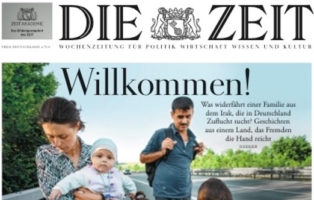Futák-Campbell, Beatrix
Theme-Group Coordinator

Reading and Narrating the Refugee/Migration Crisis
Research Question
How are those migrants/refugees streaming across European borders constructed in the press and in political narratives of various countries? What are the different historical narratives, analogies and metaphors that intersect in the construction of responses to the refugee crisis and what are the implications for the different receiving states (transit and destination), interstate relations, and also for future of the European Union? How do these relate to the historical engagement of European states in the Middle East as participants in constructing the current conflict? What does the larger analysis of these processes of meaning-making across national context suggest about how best to address the connection between the flow of refugees to Europe and conflict in the region, and Syria in particular, and thus the potential for conflict transformation?
Project Description
European publics confront daily media reports of tens of thousands of people fleeing war in Syria, among others, and travelling great distances by foot or sea in life‐threatening conditions. The spectre of, on the one hand, Hungary building walls to keep migrants out and, on the other hand, Germany opening its doors to actively welcome refugees, raises a question not only about the different narratives in which this ‘crisis’ is cast, but also the emergent potentials in the larger European context or in response to the war in Syria. The frequent shifts in policy by different states, the most notable in response to the photo of Aylan Kurdi, highlights the relationship between changing media narratives and changes in policy and practice. In addition, the use of social media to mobilize forms of humanitarian care or violent resistance also highlights a question about the relationship between traditional and social media. Within this theme group we aim to explore this relationship and its impact from different disciplinary perspectives including International Relations, psychology, journalism and combine them through different methodologies, discourse, and contemporary visual analysis. We also aim to explore producing a pilot for an interactive game that illustrated the outcomes of decisions made by the different actors involved in the refugee crisis (refugee, NGO activist, reporter, politician).
-

-
 Fellow
FellowFarmanfarmaian, Roxane
-
 Fellow
FellowFierke, Karin